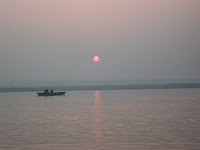This may be the last message
I plan to leave my modem with the Virtues Society on Friday afternoon, so this may be the last blog I post. We’ll be off line for the following week unless I can find a connection in Nairobi.
I think we are leaving things in good shape after all the stress and difficulties. I have had to consult a lawyer and leave a sworn affidavit as well as sending a registered lawyer’s letter to the person who has caused such havoc. Hopefully those good friends we leave here will deal with any fallout.
The use of cow dung fuel is spreading as people find less ready money to buy charcoal and fewer trees to cut. We have found an added advantage to those of saving trees and time–it appears to keep mosquitos away! Because there is no smoke and fumes as from wood and charcoal it is also better for eyes and lungs. A few groups are planning to band together to sell the dried blocks as they do in India. Rod has been very busy this past week making four wooden molds so that cakes can be produced in a uniform size for resale. He could make at least ten more if he had the time to meet the requests coming in.
We have also taught how to make liquid soap. This is a little more complex and needs marketing to hotels, clinics etc. However, if the groups can organize themselves, the return on a small investment is very high.
W are also leaving with requests for wells and protected springs. Julius the jeweler took advantage of the spring we protected in his village and dug a fish pond alongside. He immediately recruited six others and they are now waiting for approval to receive the fry from Susan Thompson’s group. Susan is a Canadian fisheries expert who has set up many ponds in the area. Apart from providing extra protein, some cash from sales, the prospects are good that local producers will be able to sell to the big new supermarket to open in Kakamega later this year. The supermarket will provide many jobs for processing and work behind the scenes, as well as front staff. We were discussing this the other evening over a drink with the District Commissioner. He is very interested in mobilizing people such as Julius to produce ‘value added’ items and to increase employment.
On a sad note, we heard yesterday of the death of a child. Another Julius was the watchman when we lived at ACCES. He was a typical example of a clever young man who never finished secondary school because of lack of fees. He was always cheerful and willing to help in many ways. We heard last year that for some reason he had lost his job. Before Christmas he asked to speak to us. We knew the reason would be money but we talked to him anyway.
After he lost his job, his pregnant wife was killed in a matatu (public vehicle) accident leaving him with two young children. This was bad enough, but his boy of about six had a severe problem with his eye. Could we help for treatment? We gave him about thirty dollars and the child went to the hospital. The diagnosis wasn’t very clear, but Julius said he had hopes for recovery, although the boy could not return to school.
His next request was for help to set up a small business so he could stay home with his kids. We decided to trust him and set him up with a business plan and about $80.
Yesterday we learned the little boy died a few days ago from cancer which spread from his eye. We have credited Julius with about $15 from his loan to help with funeral expenses. He says he is still determined to make his business work, but the stress on this young man must be enormous.
Stress and anxiety are everywhere. Schools are sending children home because of lack of fees. The government has not sent the funding for education, which was supposed to cover tuition in secondary. This would have made a regular secondary day school virtually free. Some stories say the money has been ‘eaten’; some claim it was diverted to famine relief; some say it is still available but disbursement has been slow. The bottom line is that free education is in serious trouble.
It also sounds as if the coalition that Kofi Annan helped set up in 2008 may be falling apart. Everyone is very afraid of more strife and violence. We pray the people will remain strong and determiend to improve the country. They all know what should be done, but are desperately seeking new leaders with integrity. Corruption has such a strong hold on all levels of government that it seems impossible for an "Obama" to emerge.
Next week we will be two days in Nairobi doing Virtues training. The we will spend 2 days in the UK visiting friends and family. We are scheduled to arrive in Vancouver on 27 and should be in our own bed at last on 28. We look forward to seeing everyone.
We want to thank you all for your support and prayers over the last six months. That is what keeps us strong. We have a number of talks already scheduled and are willing to do more. Please stay in touch.

.jpg)
.jpg)

.jpg)

.jpg)
.jpg)
.jpg)
.jpg)
.jpg)
.jpg)
.jpg)







































